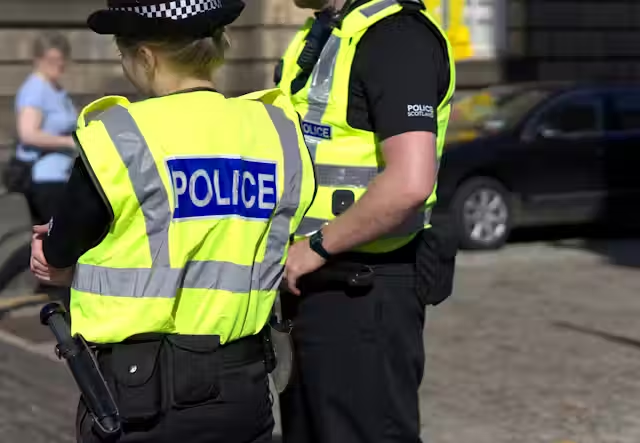By Tony O’Reilly-
Police Scotland’s professional standards department is facing questions after delaying the commencement of proceedings for gross misconduct against an officer named Cameroon Fraser for two years, following allegations of indecent communication with a child.
Fraser was sentenced to community services last week for the offence against the child, whose age has not been provided by Scotland police for reasons best known to them.
Scotland Police has today been asked by The Eye Of Media.Com to explain why it took two years for professional standards to conduct a misconduct hearing, and to disclose the age of the child in question, and whether they are male or female.
It is unknown why the precise details of the case has not been made public.
The force has promised to address our inquiries but has so far not got back on the details.
Large segments of the British public are sceptical of the integrity of professional standards in honourably investigating the corrupt dealings of its officers.
This publication today heard that a strategic review by His Majesty’s Inspectorate of Constabulary in Scotland (HMICS) concluded that progress made by the Scottish Police Authority (SPA) in providing oversight and scrutiny of policing, but that more needs to be done to provide a longer term vision and sustainable police modelling.
Fraser’s actions have been condemned by Chief Superintendent Helen Harrison, who described his behaviour as “appalling.”
Fraser was sentenced by Sheriff James Williamson after an investigation revealed his online offending, which Fraser had believed would remain undetected.
Chief Superintendent Harrison emphasized that Fraser’s conviction was the result of diligent investigative work and reinforced the commitment of Police Scotland to uphold high standards of conduct.
“In committing this crime, Fraser believed that his online offending would go undetected. However, there is no hiding place, and as a result of our investigation, he will now rightly face the consequences of his actions,” said Harrison.
“It is right policing is held to high standards and we will always support officers and staff acting with our values and standards at heart.
Those who reject what we stand for do not belong in Police Scotland.”
The process for handling gross misconduct in Police Scotland aims to ensure accountability and uphold the integrity of the force.
At the Initial Investigation stage, the professional standards department conducts a detailed investigation into the allegations of misconduct.
This includes gathering evidence, interviewing witnesses, and compiling a comprehensive report on the officer’s behaviour.
The evidence is reviewed to determine whether there is a case to answer for gross misconduct. If it is decided that the case warrants further action, formal proceedings are initiated.
The officer is notified of the misconduct charges and provided with details of the evidence against them.
They are also informed of their right to representation and the date of the misconduct hearing.
A formal hearing is convened, typically chaired by a senior officer. The officer under investigation can present their defense, call witnesses, and cross-examine evidence. The hearing panel considers all the evidence before making a determination.
If the officer is found guilty of gross misconduct, a range of sanctions can be imposed. These may include dismissal from the force, demotion, written warnings, or mandatory training.
Appeals Process
The officer has the right to appeal the decision of the misconduct hearing. An appeal must be lodged within a specified period, and it will be reviewed by an independent panel or authority.
The timeline for gross misconduct proceedings can vary depending on the complexity of the case and the availability of evidence.
Typically, the entire process from the initial investigation to the final outcome can take several months to over a year. Key factors influencing the duration include:
However, this publication awaits an explanation from Scotland Police as to why it has waited this long to conduct a misconduct hearing in such a serious matter.




